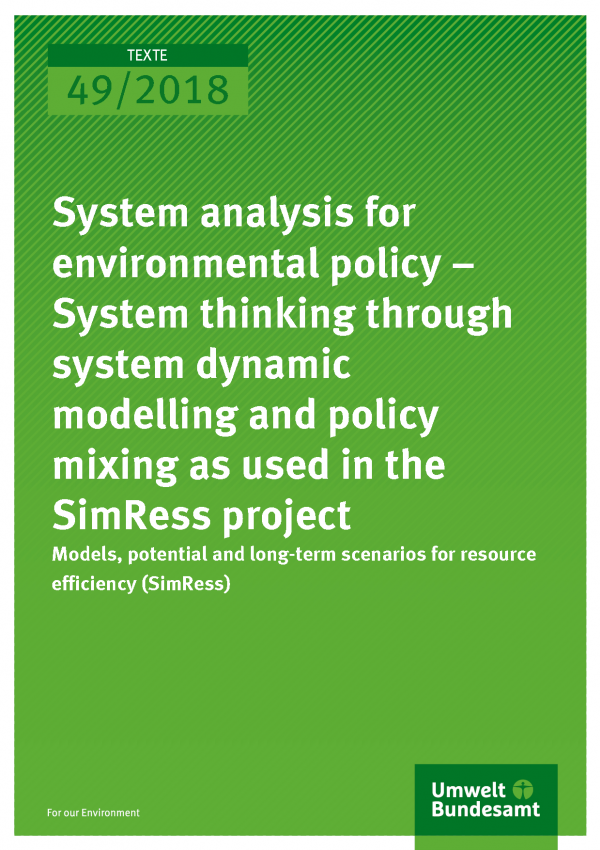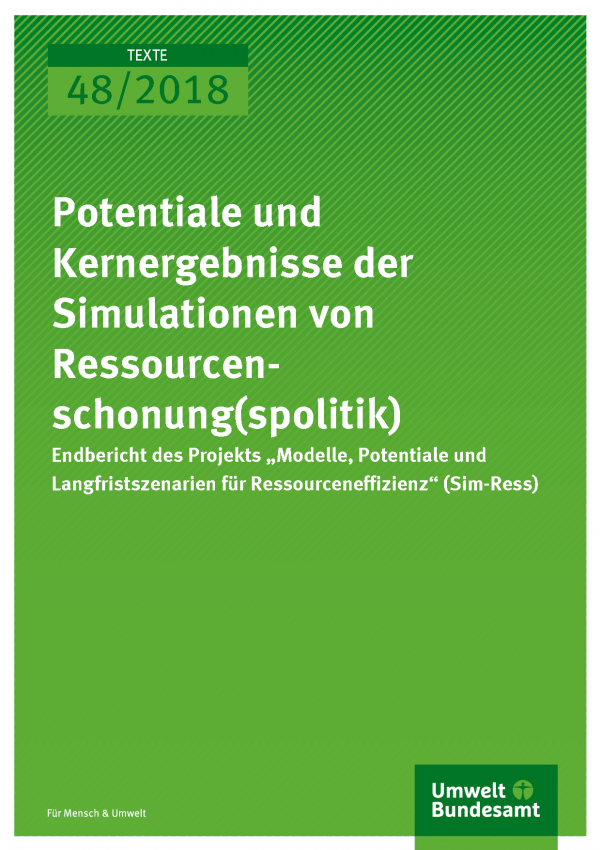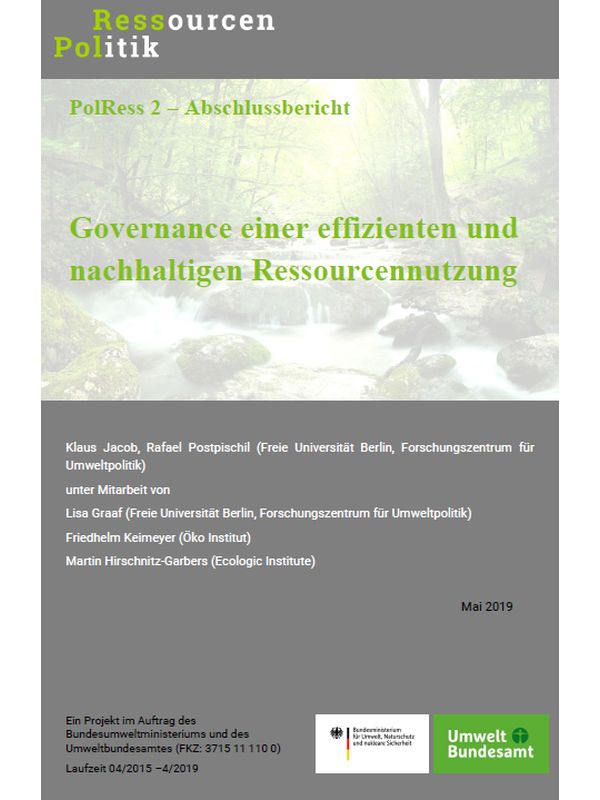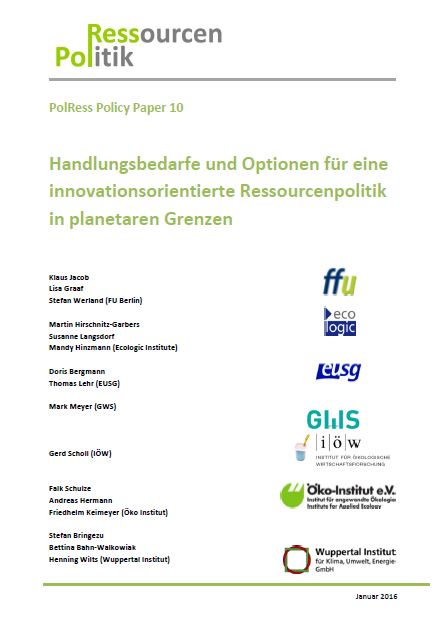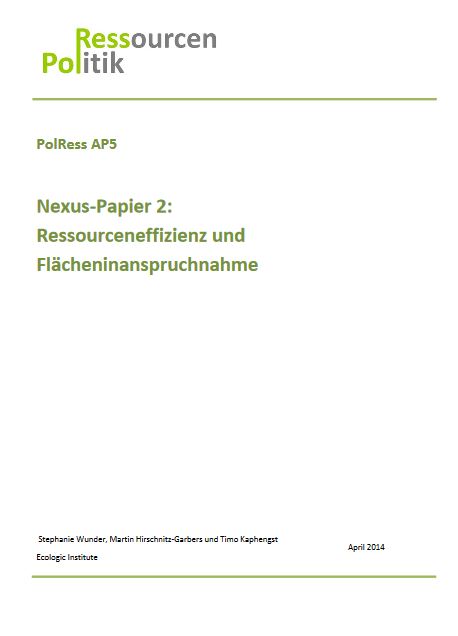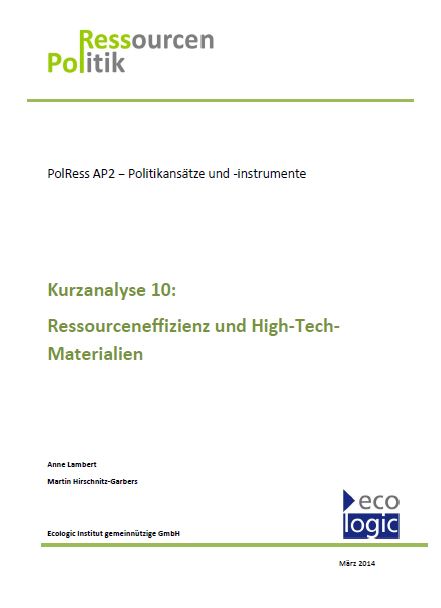Thuringia is one of the first German states to draft its own resource conservation strategy. This requires a solid data basis on the resource flows of the state. In the ThüRess project, Ecologic Institute and the Institute of Economic Structures Research (GWS) are developing this database as well as measures for such a resource conservation strategy.
The project partners are investigating selected resource flows that are particularly relevant for Thuringia. The focus is on abiotic raw materials such as building sands, natural stones and gypsum as well as biotic raw materials such as wood. Furthermore, the resources soil, land, water, nitrogen and phosphorus are investigated. These resources are of particular interest due to the great importance of agriculture in Thuringia.
In addition to the evaluation of statistical data, the project team will examine the value chains of relevant industries and sectors in more detail. In order to close remaining information gaps and to develop options for action, the project partners will interview stakeholders. The overall picture of Thuringia's resource flows developed in this way is then subjected to a risk assessment. This means, the team examines the extent to which the supply of the relevant resources could be critical in the medium or long term (criticality). The team uses the findings to develop recommendations for action. In this way, the project supports the Thuringian Ministry of the Environment and the Thuringian Energy and GreenTech Agency (ThEGA) in developing a strategy for resource conservation and circular economy.




